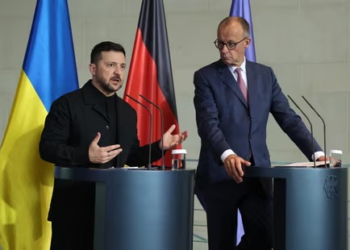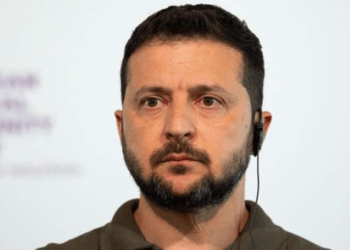The European Union has announced its EU Preparedness Union Strategy, outlining plans to prevent and respond to new crises and threats, such as floods, wildfires, or conflicts.
The strategy is aimed at supporting Member States and enhancing Europe’s capability to prevent and respond to emerging threats.
It comes as the European Union is facing increasingly complex crises and challenges that “cannot be ignored” such as growing geopolitical tensions and conflicts, hybrid and cybersecurity threats, foreign information manipulation and interference, to climate change and increasing natural disasters.
The underlying report said that the EU crisis management is “mostly reactive, rather than pro-active,” with insufficient tools for spotting risks early, and fragmented response mechanisms.
The strategy proposes 30 actions, including developing “minimum preparedness criteria” for essential services, enhancing the stockpiling of critical equipment and materials, and encouraging the public to adopt practical measures, such as “maintaining essential supplies for a minimum of 72 hours in emergencies.”
The Strategy focuses on an integrated all-hazards approach, a whole-of-government approach, which brings together all relevant actors, across all levels of government (local, regional, national, and EU) and a whole-of-society approach, bringing together citizens, local communities and civil society, businesses and social partners as well as the scientific and academic communities.
The report on Preparedness and Readiness of the EU concluded that strengthening Europe’s civilian and military preparedness and readiness to address today’s growing security challenges – in health, migration, technology security, climate, defence or the economy – is a matter of urgency.
The report called for a profound change of mindset, and a shift in the way we understand and prioritise preparedness across the European Union.
It also recognised that preparedness is not only a national responsibility but a shared European endeavour requiring stronger role for the Union in coordinating and supporting Member States in this area.
EU Social rights and Preparedness Commissioner, Roxana Mînzatu said that the bloc wanted to “talk to our citizens, of all generations” to make sure they are “equipped, skilled, prepared” to react to power cuts, natural disasters, and other potential issues.

“This Strategy is for people and societies, to help ensure that when a crisis strikes, everything works as it should, and we are ready to act swiftly and effectively. For that, we need a new preparedness mindset so that everyone knows what to do in any emergency, no matter its nature.
“Europe must act with agility, working closely with Member States to boost efficiency, save time and save lives. This Strategy is our insurance policy, so we are ready to care of our people when they need it most.”
Roxana Mînzatu
New Level Of Preparedness Required

European Commission President, Ursula von der Leyen said that new realities require a new level of preparedness in Europe.
She added that citizens, Member States, and businesses need the right tools to act both to prevent crises and to react swiftly when a disaster hits.
“Families living in flood zones should know what to do when the waters rise. Early warning systems can prevent regions hit by wildfires from losing precious time.
“Europe stands ready to support Member States and trusted partners in the neighbourhood to save lives and livelihoods.”
Ursula von der Leyen
Similarly, Hadja Lahbib, Commissioner for Equality, Preparedness and Crisis Management asserted that preparedness must be woven into the fabric of our societies and everyone has a role to play.
She noted that current threats are fast, complex, and interconnected.
As such, response must be more proactive, more integrated, and more coordinated at European level. “By harnessing the energy of our institutions, businesses, and citizens, we can build resilience and ensure Europe emerges stronger from crises,” she stressed.
READ ALSO: George Quaye Disappointed in Pastor Chris’ Allegations Against Secular Musicians







